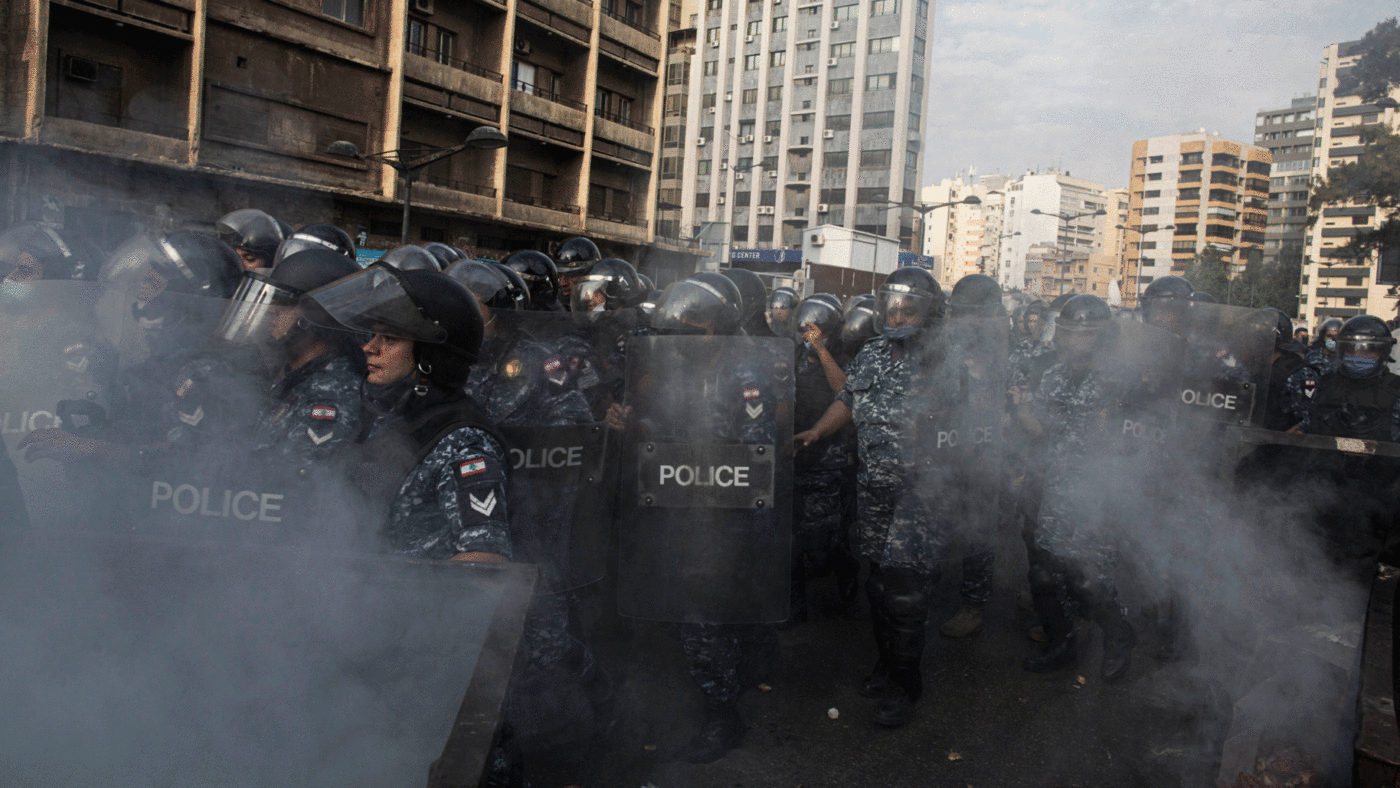Bread riots have broken out in Lebanon, where food prices have increased by an estimated 400% in the year to September. Many families can’t afford even the bare necessities, but this week the country’s central bank announced that subsidies on basic items like food, fuel and medicine could not continue. Protesters have since taken to the streets, blocking roads in Beirut, setting fires and attempting to storm the parliament building.
Lebanon is a country in the grip of a profound crisis, one potentially every bit as severe as the 15-year civil war that ended in 1990. Even before August’s catastrophic Port of Beirut explosion left up to 200 people dead and more than 300,000 homeless, Lebanon was on the brink. In the preceding ten months, the Lebanese pound lost some 80% of its value. On current projections, Lebanon’s debt-to-GDP ratio is expected to exceed 160% this year, making it amongst the most indebted nations in the world. Around a quarter of the working age population is unemployed, and nearly a third of the total population is living below the poverty line.
Now the widespread demonstrations have cast doubt over whether the mooted $10 billion IMF bailout package will be enough to pull the country out of its debilitating economic tailspin.
Such instability threatens to expose the sectarianism that has long been a feature of Lebanon’s fractured politics, creating a power vacuum in a highly volatile region. It is all too easy to forget the extent to which Lebanon’s history has been shaped by the geopolitics of the Middle East. It has long struggled to mitigate the malign influence of its neighbours, notably Syria and Iran, which has long backed Hezbollah. The group has been instrumental in prolonging Syria’s civil war – soon to enter its tenth year – providing essential military support to the regime of Bashar al-Assad. In doing so, it has violated a key feature of Lebanon’s geostrategic equilibrium, namely its policy of dissociation from regional conflicts.
Hezbollah’s unapologetic support for terrorism in Iraq and the Palestinian territories continues apace, while it has amassed an arsenal of weapons in Lebanon, in direct contravention of UN Security Council Resolutions 1701 and 1559. While the EU and a host of nations once sought to observe a nominal distinction between the organisation’s political and military wings, the UK is amongst many to have concluded that ‘the group in its entirety is assessed to be concerned in terrorism’, adding it in March 2019 to its list of 76 proscribed organisations under the 2000 Terrorism Act.
Lebanon’s current paralysis presents a significant opportunity for Hezbollah. Rightly characterised as ‘a state within a state’, its influence throughout Lebanon’s political, economic, and strategic landscape is as extensive as it is pernicious. Shortly after the Port of Beirut blast, the UN’s Special Tribunal for Lebanon delivered its much-anticipated verdict, convicting one of four Hezbollah suspects, Salim Ayyash, of carrying out the 2005 murder of Prime Minister Rafiq Hariri. Though the tribunal found no definitive proof that the Hezbollah leadership had sanctioned the assassination, its refusal to allow the arrest of the suspects raised eyebrows.
Hariri’s son, Bahaa, is amongst several prominent figures in Lebanon warning of the need to check Hezbollah’s growing influence. Unless that happens, he says, Lebanon risks being placed under crippling sanctions, which could prove terminal for the country’s ailing economy. He has been at pains to highlight that Hezbollah’s presence within government bars Lebanon from receiving much-needed international support – through aid and financial assistance programmes – that will help stabilise and reinvigorate the economy.
Instead, Hezbollah looks set to upset Lebanon’s delicate balance of power, using its status as the country’s only armed militia and the disunity of its opponents to advance the interests of the minority Shia population. It is far from clear whether the current government can muster the necessary unity to address the multitude of political and economic challenges it now faces.
This mounting instability threatens to turn Lebanon once again into a crucible for conflict. The erosion of constraints on Hezbollah’s power within Lebanon promises to strengthen Iran’s hand in the region, and to increase the likelihood of future conflict between Lebanon and neighbouring Israel.
Predictably, the urgency of Lebanon’s dilemma has been overshadowed by the Covid-19 pandemic, which has focused policymakers’ attention increasingly on domestic, rather than international concerns. But we cannot afford to overlook the severity of the situation, and the implications of a new political crisis at the heart of the Middle East. Western ambivalence to the scale of the crisis facing Lebanon is a mistake. And one we will come to regret.
Click here to subscribe to our daily briefing – the best pieces from CapX and across the web.
CapX depends on the generosity of its readers. If you value what we do, please consider making a donation.


